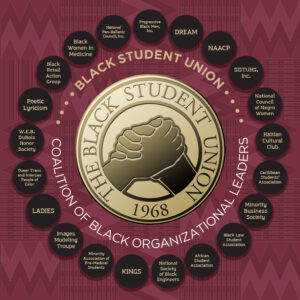
Florida State University’s Black Student Union held up a mirror to the mental, physical and emotional health of the university’s African American students.
The BSU’s Friday event, entitled Importance of Black Health, highlighted healthy ways to improve upon one’s overall well-being and also provided statistics on racial disparities in hospitals and doctors’ offices that may affect one’s treatment. The organization provided their audience with a respectfully interactive discussion and games that allowed the engagement to flow naturally throughout the night.
The BSU began their event with a short introduction and a Kahoot! quiz to highlight healthy habits and Black history facts related to the topic at hand. Even questions with seemingly obvious answers allowed students to recognize bad habits within themselves or their peers. They described practices such as bottling up emotions, retail therapy and consistent drinking as non-viable ways to deal with problems.
Organization members also discussed academic pressures allowing co-host Cristine Gonzales to assure them that while school is important, it shouldn’t come before your health .
“GPA is important but it’s also important to realize that it’s not everything,” Gonzales said.
At the end of the quiz participants went into breakout rooms to discuss health-based questions. In order to ensure respectful conversation co-host Marlon Derilus encouraged students to debate without aggression or disrespect.
“Generate light not heat,” Derilus said
The guided conversation allowed for everyone to share their stories, discuss different ideals and how they were able to overcome their own obstacles concerning health. This activity allowed students to connect with people who have gone through similar experiences or speak with those who have made it to the other side of a problem they are currently facing.
Following this deliberation, the BSU and other FSU organizations guided the audience though a PowerPoint discussing all levels of healthy habits. The evening ended with a health-based game of “Would you rather” and a list of resources for those who may seek additional help.
While the team admitted to not having any formal training on this topic, they were able to use fun facts and thorough research to empower students with information about the tools necessary to build a healthier lifestyle for themselves. Many participants, such as FSU public health student Simone Harris, can testify to the success of this event.
“I really enjoyed it,” Harris said. “In my opinion teaching heath information to people who might not be interested in it otherwise can be really tough so I think they did a good job keeping it applicable to a student’s life on campus.”